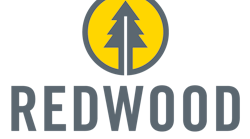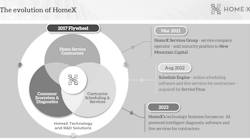In the “battle for talent,” companies that offer the most money do not necessarily win in the end. While the amount a future employee will be paid is important, attracting and retaining the best talent goes beyond a monetary value.
The workforce has changed and with Millennials focused on other aspects of a work environment besides salary, it is important that a company do the same when recruiting. In order to be successful in attracting and landing top talent, place focus on the following four areas:
- Defining your company culture
We all know Mission, Vision and Value statements drive a company’s culture, but did you know a strong culture can be a profit center for your organization? People want to work for a company because they have heard about its strong culture. The more interested people are in working for the organization, the larger the pool of candidates you will have from which to choose. This allows for more flexibility in hiring as you seek new team members who fit into that culture.
Hiring and retaining the best team members will, in turn, attract clients, customers and additional business because the culture will be visible through the interaction of each team member since he or she represents the “brand” of the organization, both in and out of the office.
The more interested people are in working for the organization, the larger the pool of candidates you will have from which to choose.
Strong cultures are not easy to build and they take a great deal of dedication and investment by the leadership team. Some areas to focus on while building a strong and profitable culture include:
- On-boarding and mentoring programs
- Community involvement/social responsibility
- Recognition
- Leadership development
- Succession planning
- Offering creative benefits
Competitive benefits don’t have to be expensive, they just require some out-of-the-box thinking. In addition to an attractive and affordable health insurance plan and any matching to employees’ 401(k) deferrals, there are several ancillary benefits you can implement at little or no cost to you, such as:
- Holiday savings clubs
- Casual dress code
- Telecommuting
- Flexible hours
- Coverage for domestic partners
Benefits must stand out in today’s market and the first step to thinking creatively about these is to know your workforce – both current and future. Today’s workforce is demographically different from the workforce from even one generation ago. Building custom benefit packages for employees will go a long way in ensuring their happiness and longevity at your company.
Competitive benefits don’t have to be expensive, they just require some out-of-the-box thinking.
- Building a productive team
A productive team communicates constructively, shares ideas, actively listens to each other, and is flexible and respectful of one another. By seeking candidates who fit the cultural niche of your organization, not just the qualifications for the job, you are setting the productivity bar higher for the team they will be joining. Ignoring personality assessments, gut feelings about a candidate and focusing solely on the resume could potentially be devastating to the overall team dynamics. Yes, the candidate may be qualified on paper, but will he or she really work for and with your team?
When interviewing candidates, consider the following:
- How will this candidate work with the current team you have in place?
- How did he or she respond to, “When you work with a team, describe the role that you are most likely to play on the team?”
- Did the applicant actively listen to your comments and questions and come prepared for the interview?
- Did the candidate openly and willingly share information during the interview, or was he or she hesitant, tentative or seem to be avoiding details?
- Did the candidate describe your cultural environment when asked, “What is your ideal work environment?”
- Engaging employees from the beginning
Employee engagement is the act of getting employees to feel connected to and enthusiastic about their jobs, and many consider it the foundation of business productivity. Engaged employees stay focused and maintain the strength and inspiration needed to motivate others around them. Having engaged employees from the start will not only support the goals of your company, but virtually eliminate many future complications.
During the interview process, be sure to communicate what matters most to the company. By informing candidates up front of these crucial details, you allow them to make informed decisions about focusing on, or even discontinuing your interview process. Discuss the goals of the company, the general rules of the organization and any appropriate details that will give the potential employee an accurate understanding of the company’s needs and how he or she would fit into that defined corporate culture.
Once hired, welcome each new employee with open arms. Let each new hire know that they are important to the organization by being prepared with a proper workstation, paperwork and onboarding program so they can have a productive first day and feel like they can transition smoothly into the new job.
As the labor supply fluctuates, employers must provide a compelling work environment for prospective employees. A comprehensive benefits program, sound company culture and smooth employee integration into the company and teams are all key components to help attract and retain top talent seeking to join a company that meets their needs and aligns with their personal goals.










